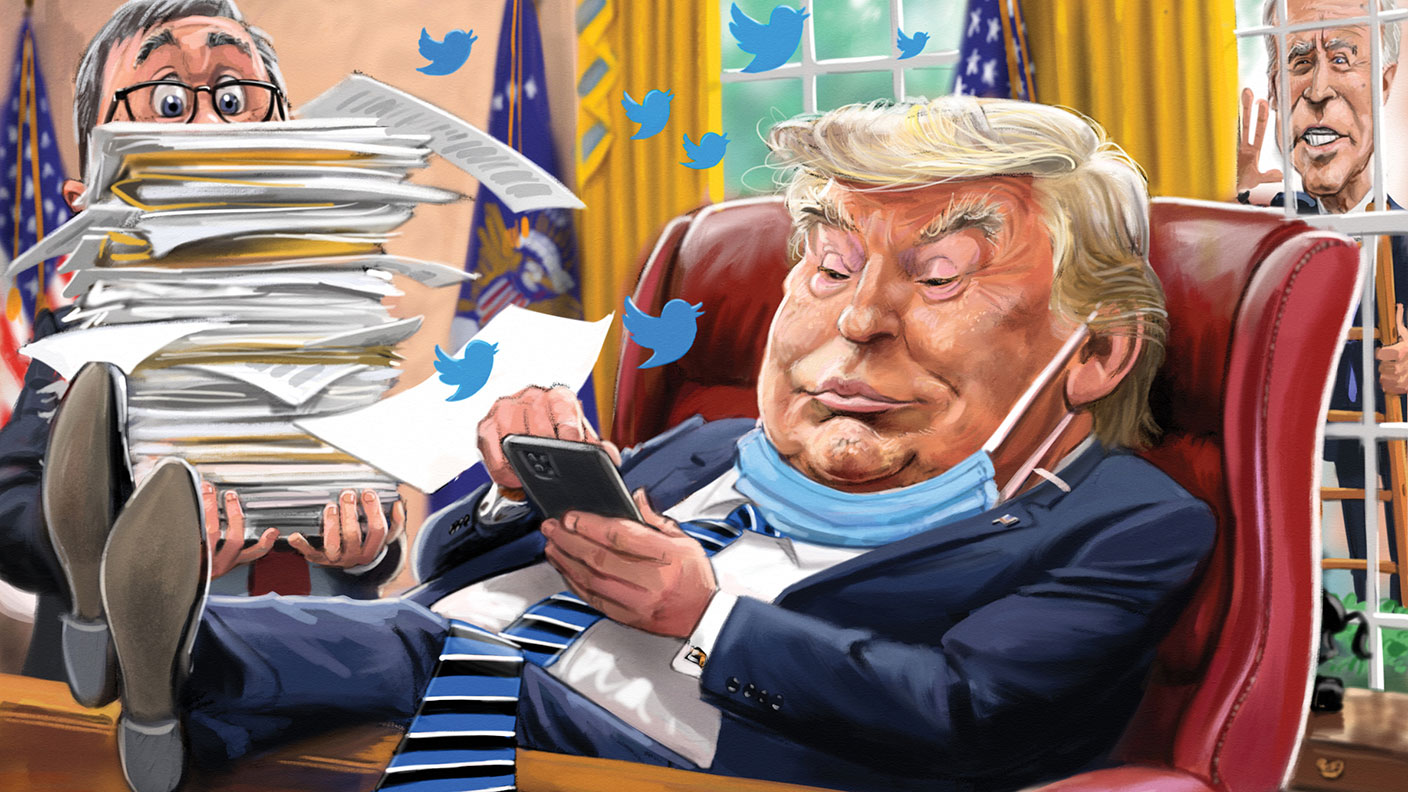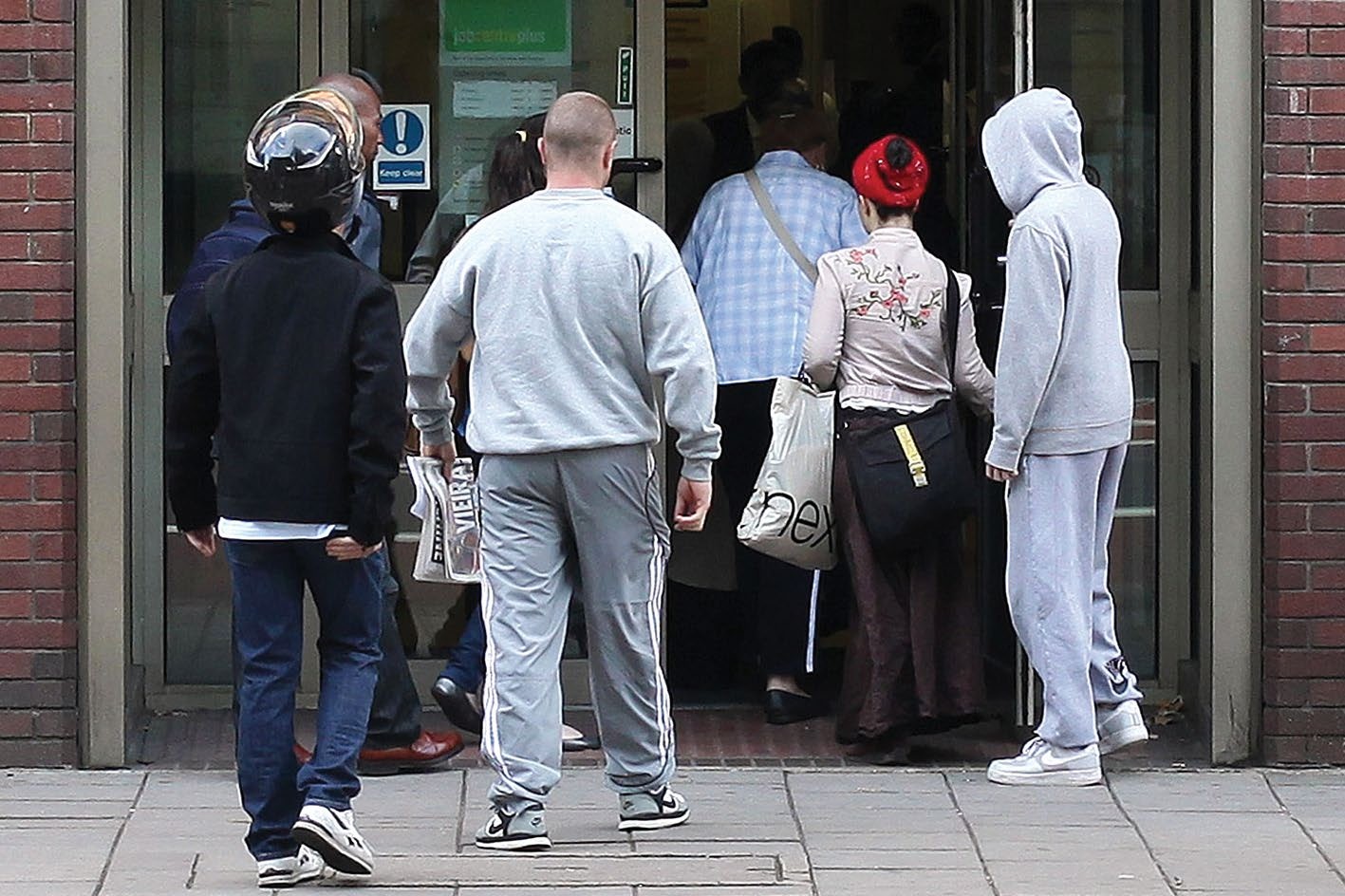The riskiest election in US history
Donald Trump’s illness has rattled markets as investors try to understand the implications of an incapacitated American president or a bitterly contested election.

Get the latest financial news, insights and expert analysis from our award-winning MoneyWeek team, to help you understand what really matters when it comes to your finances.
You are now subscribed
Your newsletter sign-up was successful
Want to add more newsletters?
US stock indices shrugged off news of Donald Trump’s hospitalisation over the weekend. The S&P 500 hit a one-month high as Trump was discharged on Monday. Yet the early optimism was undone when Trump ordered an end to talks with Democrats on a second stimulus bill. The S&P 500 finished Tuesday down by 1.4%.
The first stimulus bill lapsed over the summer, leaving unemployed Americans to depend on a patchwork of measures rolled out by the White House and individual states. The Democrat-controlled House of Representatives had initially called for $3.4trn in new support measures before reducing its demand to $2.2trn last week, while the Republican-controlled Senate favoured a figure closer to $1.6trn.
Would equities prefer Biden?
Trump’s surprise announcement that he would ask Republican allies to stop negotiating a stimulus will please fiscal conservatives wary of ever more federal spending, says the BBC’s Anthony Zurcher. Yet it is difficult to see how this benefits Trump politically. A new wave of economic angst before the election will do the incumbent no favours.
Try 6 free issues of MoneyWeek today
Get unparalleled financial insight, analysis and expert opinion you can profit from.

Sign up to Money Morning
Don't miss the latest investment and personal finances news, market analysis, plus money-saving tips with our free twice-daily newsletter
Don't miss the latest investment and personal finances news, market analysis, plus money-saving tips with our free twice-daily newsletter
The odds of a Joe Biden victory leapt over the weekend in betting markets, says Irwin Stelzer in The Sunday Times. That could be good for stocks, which “abhor uncertainty” when Trump is “uncertainty incarnate”. JPMorgan and Citigroup argue that a Biden presidency will be bullish for shares. They say it could deliver an economic “sugar high” from stimuli, especially if Democrats also take the Senate, as is looking increasingly likely.
In reality, investors are broadly agnostic about who prevails in November, Scott Knapp of CUNA Mutual Group tells the Associated Press. “It’s pretty difficult to overstate how understated the market’s reaction was,” to the president’s Covid-19 diagnosis. Investors don’t care for Donald Trump’s trade wars, but they seem just as unexcited about Joe Biden’s tax and regulate agenda. What does scare them is the prospect of a disputed election.
The president is unwell
Most presidential health scares make little impact on markets, but there have been exceptions, says Lex in the Financial Times. Eisenhower’s heart attack in 1955 saw the S&P 500 fall by nearly 7%, while it dropped by 3% following JFK’s assassination in 1963. Yet three months later – and this applies to nine out of ten pre-Trump health incidents – the market was either up or down by less than 1%. (The exception was Truman’s 1952 hospitalisation.) That is a testament to the strength of America’s institutions, which do not depend upon the health of one man.
Trump’s illness may have a larger impact than usual as it could shape US pandemic policy, says Jeremy Warner in The Daily Telegraph. Yet all this fretting about the election and American democracy seems overdone. Investors may complain about Washington, but they still buy the dollar and that says a lot more than words alone.
Get the latest financial news, insights and expert analysis from our award-winning MoneyWeek team, to help you understand what really matters when it comes to your finances.
-
 What do rising oil prices mean for you?
What do rising oil prices mean for you?As conflict in the Middle East sparks an increase in the price of oil, will you see petrol and energy bills go up?
-
 Rachel Reeves's Spring Statement – live analysis and commentary
Rachel Reeves's Spring Statement – live analysis and commentaryChancellor Rachel Reeves will deliver her Spring Statement on 3 March. What can we expect in the speech?
-
 UK small-cap stocks ‘are ready to run’
UK small-cap stocks ‘are ready to run’Opinion UK small-cap stocks could be set for a multi-year bull market, with recent strong performance outstripping the large-cap indices
-
 The scourge of youth unemployment in Britain
The scourge of youth unemployment in BritainYouth unemployment in Britain is the worst it’s been for more than a decade. Something dramatic seems to have changed in the labour markets. What is it?
-
 In defence of GDP, the much-maligned measure of growth
In defence of GDP, the much-maligned measure of growthGDP doesn’t measure what we should care about, say critics. Is that true?
-
 Reach for the stars to boost Britain's space industry
Reach for the stars to boost Britain's space industryopinion We can’t afford to neglect Britain's space industry. Unfortunately, the government is taking completely the wrong approach, says Matthew Lynn
-
 "Botched" Brexit: should Britain rejoin the EU?
"Botched" Brexit: should Britain rejoin the EU?Brexit did not go perfectly nor disastrously. It’s not worth continuing the fight over the issue, says Julian Jessop
-
 'AI is the real deal – it will change our world in more ways than we can imagine'
'AI is the real deal – it will change our world in more ways than we can imagine'Interview Rob Arnott of Research Affiliates talks to Andrew Van Sickle about the AI bubble, the impact of tariffs on inflation and the outlook for gold and China
-
 Tony Blair's terrible legacy sees Britain still suffering
Tony Blair's terrible legacy sees Britain still sufferingOpinion Max King highlights ten ways in which Tony Blair's government sowed the seeds of Britain’s subsequent poor performance and many of its current problems
-
 How a dovish Federal Reserve could affect you
How a dovish Federal Reserve could affect youTrump’s pick for the US Federal Reserve is not so much of a yes-man as his rival, but interest rates will still come down quickly, says Cris Sholto Heaton